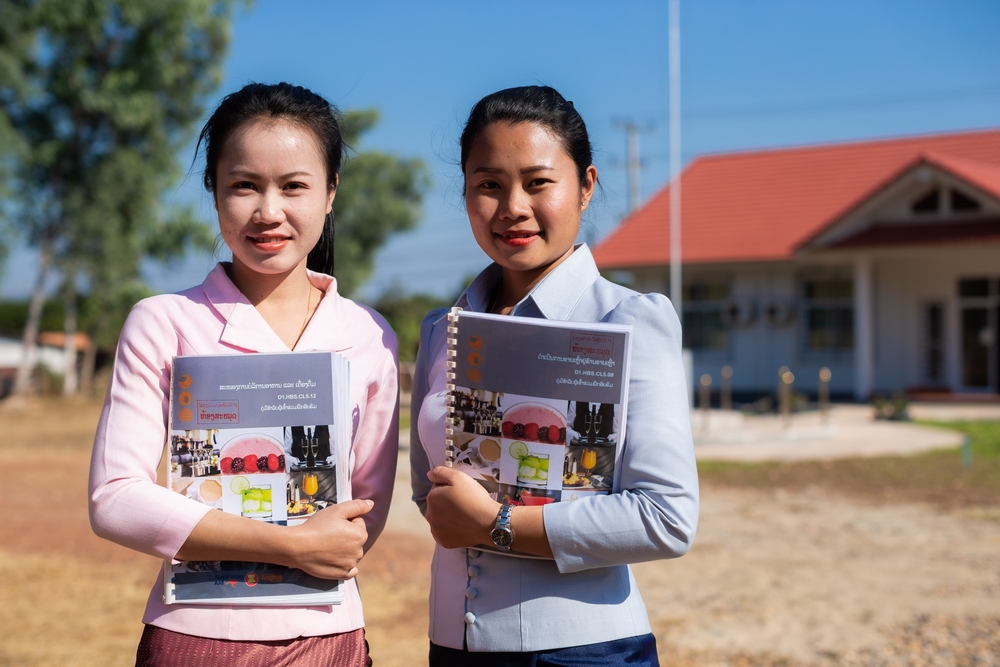

Feedback on Business Partnership Facility
While a new call for projects of the BPF co-financing mechanism is open until 20 October, the first companies that have benefitted from it have shared their experience.
 Jean-Michel Gaudron
Jean-Michel Gaudron
 The Business Partnership Facility (BPF) is a financing tool aimed at encouraging partnerships between Luxembourg (or European) companies and partners (companies, administrations or the civil society) based in developing countries, in order to set up sustainable business projects.
The Business Partnership Facility (BPF) is a financing tool aimed at encouraging partnerships between Luxembourg (or European) companies and partners (companies, administrations or the civil society) based in developing countries, in order to set up sustainable business projects.
Initiated by the Directorate for Development Cooperation and Humanitarian Action of the Ministry of Foreign and European Affairs, it is implemented by LuxDev, the Luxembourg agency for development cooperation, in partnership with the Chamber of Commerce and Luxinnovation.
The co-financing, offered in the form of grants, can reach up to 50% of the total project budget, with a maximum of €200,000.
Since its launch in 2016, the BPF has supported 34 projects, mostly in Africa, for an average co-financing amount of €142,000. The BPF has thus enabled the Luxembourg companies supported to discover new markets, while contributing to the development of the countries in which they operate.
Here are two concrete examples:
Jway: tele-procedures in Senegal
 For more than 20 years, social and solidarity economy company Jway, which was originally housed at Technoport before going its own way, has developed services and solutions aimed at accompanying and facilitating the digitalisation of companies and institutions.
For more than 20 years, social and solidarity economy company Jway, which was originally housed at Technoport before going its own way, has developed services and solutions aimed at accompanying and facilitating the digitalisation of companies and institutions.
This even extends to the highest levels of government, as the company has embarked on a project entitled “Socle de dématérialisation des procédures administratives de l’État du Sénégal”. “The aim is to accelerate the digitisation of public services in Senegal and to support the state in setting up a way of assisting citizens through the industrialisation of the development of ‘tele-procedures’,” explains Joseph Nana, General Manager of Jway Africa, who is in charge of the implementation of this project.
The objective is twofold. It is firstly to provide the State of Senegal with a standard base for the dematerialisation of administrative procedures that can be used, in the long term, by all the country’s administrations. The second objective is then to transfer the company’s know-how to the national agency Senegal Numérique (Senum), in order to industrialise the production of procedures with a view to digitalising the vast majority of the more than 700 administrative procedures identified to date. “Our mission is to provide a digitisation solution and long-term support,” says Mr Nana.
However, this is only the first step, as the ultimate goal is to provide Senum, over the long term, with a method and software package dedicated to the industrialisation of the creation of tele-procedures and their management process by the administration. “Once our platform is implemented, each administration will be able to submit its terms of reference and expect in return, and in the shortest possible time, an online service that is adapted while remaining standardised and efficient.”
Upstream of this project co-financed by the BPF mechanism, Luxinnovation was very present in supporting Jway during the pre-selection phase. “In particular, we were helped to fill in the various financial tables related to the formalisation of the project. Even if it was quite tedious, these tables allowed us to structure the project for its success.”
For its part, LuxDev intervened – and continues to intervene – to support the company in the operational phase of the project, which is still in progress. Initially, the process of industrialising the digitalisation of the State’s administrative procedures is being initiated with a limited number of concrete cases. “The choice of these first tele-procedures is crucial,” notes Mr Nana, “They should initiate and serve as a basis for the rest of the project. We are aiming for a first batch of seven simple online procedures, which will then serve as an example, rather than targeting fewer but more complex procedures.”
This phase also includes training three Senum users to make them autonomous in creating forms and setting up workflows.
“At this stage, we have set up the project team within Senegal Numérique. The tele-procedures to be dematerialised are being selected and will primarily concern what are known as life events, as recommended by Senegal’s e-Gov strategic plan,” says Mr Nana.
InTech: technology for the victims of war
InTech, an IT services company belonging to the Post group, has had a department dedicated to innovation since 2018. Its ambition is to new IT trends and technologies and apply them to innovative projects. “From the outset, we turned to the social and solidarity economy, because we realised that many associations did not have IT skills and thus represented an ideal innovation laboratory for us,” explain Sébastien Larose, Innovation Director, and Nicolas André, Manager, at InTech. “We then approached the ShareIT incubator, hosted by Station F in Paris.”
A first project was quickly set up with the non-governmental organisation We are NOT Weapons of War, led by its founder Céline Bardet. The idea is simple: to offer as many people as possible a digital tool whose objective is to provide assistance and support to victims of sexual violence (but not only) in the context of armed conflicts. This is done in particular through the collection of victims’ testimonies, which can then be used as legal evidence in the event of subsequent legal action, in particular before the International Criminal Court.
This is how the Backup tool project was born. “We then worked on a web application accessible on mobile phones and adapted to populations with highly fluctuating levels of literacy. It makes it possible to collect testimonies on a large scale, provide support in the field when necessary, and finally notarise testimonies in the legal sense, i.e. conserve of digital evidence with the help of blockchain technology,” explains Mr André.
The development of the technological tool was not the most complex part of the project, as it was the human aspect that quickly became apparent. Thus, although this application was initially designed directly for the victims, the observations made by Céline Bardet and her team quickly showed that it was necessary, at least initially, to rely on local partner representatives to support the populations in the appropriation of the tool, particularly through the establishment of a relationship of trust with the victims.
In 2019, on the occasion of the Stand Speak Rise Up conference, Intech had the opportunity to discuss the Backup tool, supported by Grand Duchess Maria-Teresa, with a population that was particularly sensitive and aware of the issues addressed by the application. “We met with representatives of the Ministry of the Economy who told us about BPF and its financing options. That’s how we started working on the application,” recalls Mr Larose. “Clearly, the BPF co-funding allowed us to move from the Proof of Concept stage to the actual production of the tool.”
Initially, Backup was intended to be deployed in Guinea-Conakry. But the political situation and the general context in this West African country, in addition to the health crisis linked to COVID, did not allow the hoped-for deployment on the spot. This setback led the designers of the application to review their copy and reposition their strategy towards a new graphical interface and new functionalities allowing a simplified deployment of the platform in any country.
In the meantime, the war in Ukraine has reshuffled the cards and made it obvious that the application had to be deployed in this geopolitical context. InTech has taken care to enlist the cybersecurity services of its parent company, Post, in order to improve the tool’s security as much as possible and make it compatible with the necessary security requirements for the protection of personal data. “We obviously have a strong moral duty to protect this data in particular, because lives are directly at stake,” says Mr André.

Stimulating innovation
These two examples illustrate perfectly the changing context of rapid adoption of new technologies and, at the same time, an increase in use cases distinct from the original applications, depending on the economic or socio-cultural contexts of adoption.
“As far as the so-called ‘developing’ countries are concerned, the response to their specific challenges seems less likely to come from simply catching up with Western modes of production and consumption than from the innovative adaptation of the latest globalised technologies to their own use cases,” notes Avit Blanchy, Senior Advisor – Corporate R&D and Innovation Support at Luxinnovation."
The projects supported by the BPF offer a tremendous opportunity for innovative European companies to explore new markets and new use cases and to stimulate their capacity for innovation through these collaborations.
Luxinnovation’s overall mission is to promote innovation for the benefit of the Luxembourg economy and society. “The partnership with LuxDev on the BPF allows us to add an inclusive dimension towards other economies and populations, which Luxembourg naturally supports, to this mission.”







